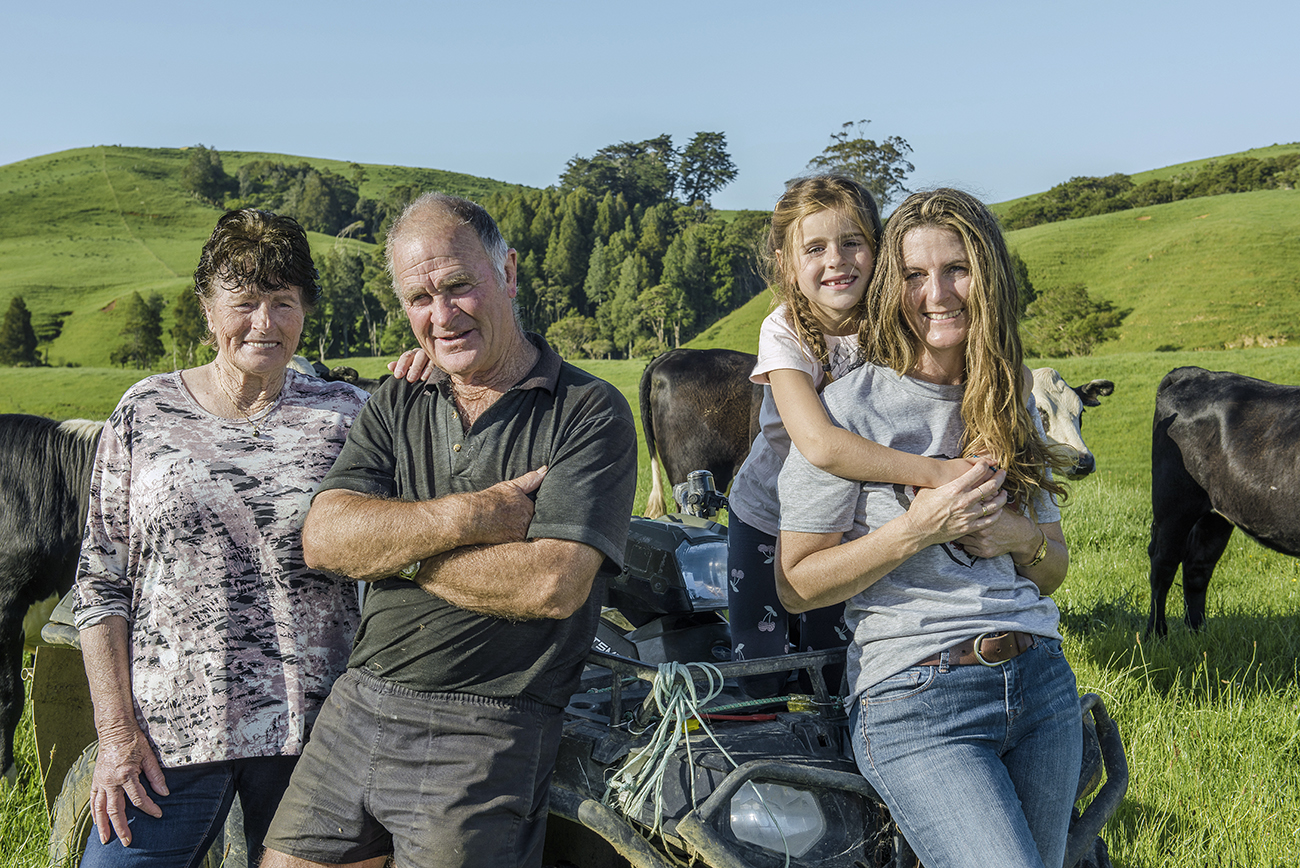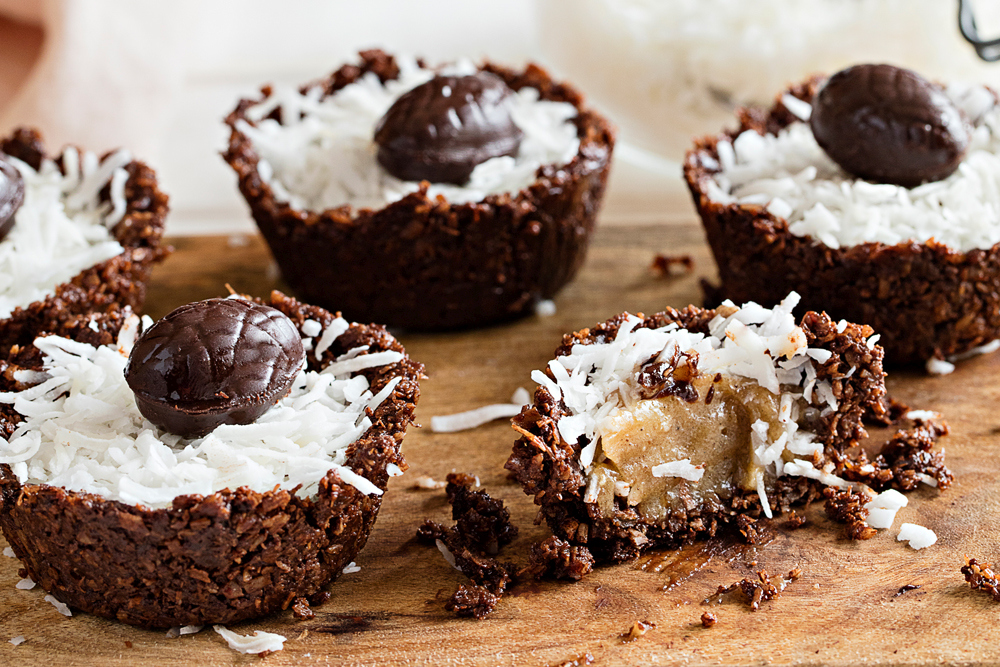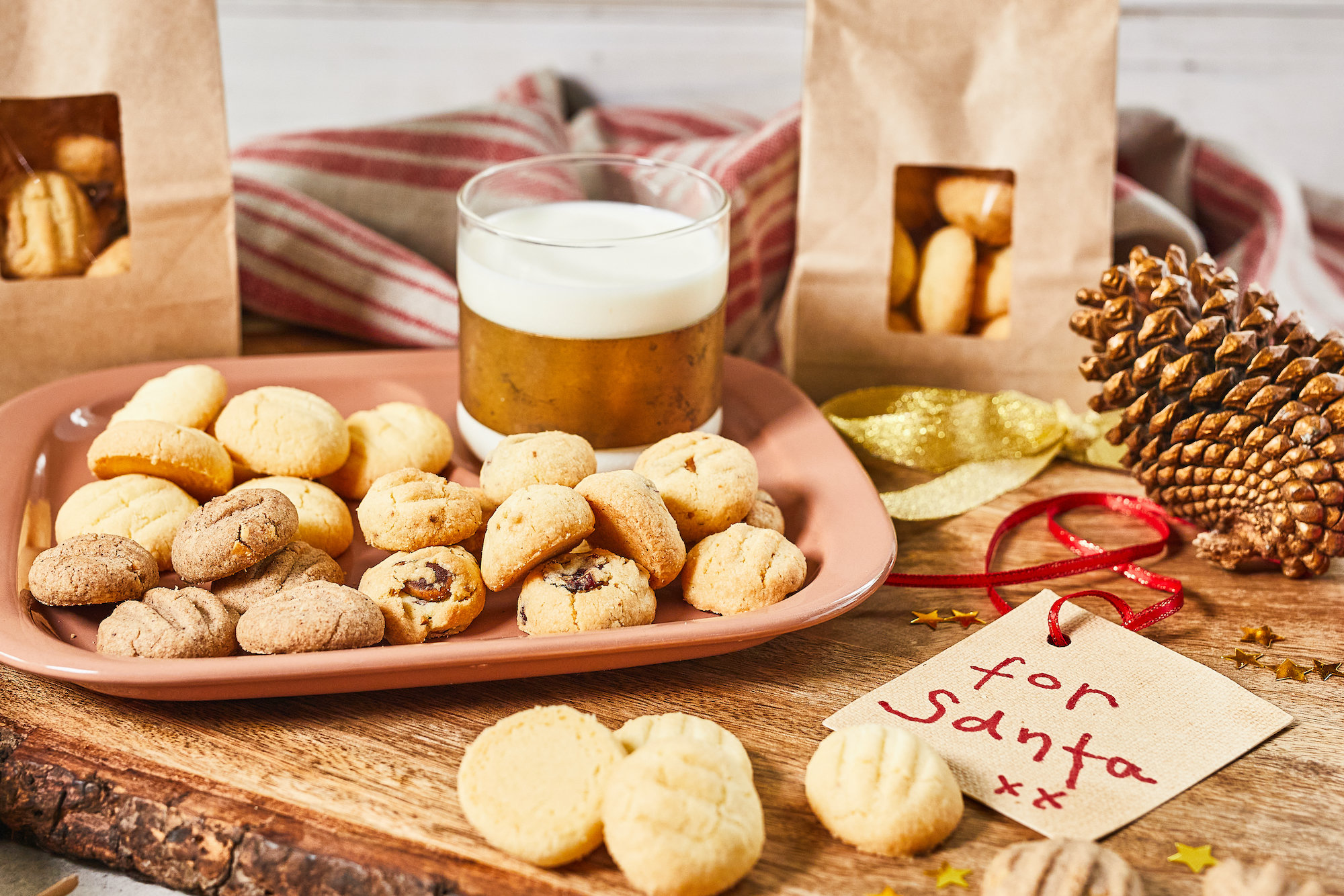With increasing awareness of the negative effects of intensive farming on the environment, animal welfare and, inevitably, our own health, many are turning away from meat consumption. But is there a more sustainable, ethical way to have meat remain part of our lives? Good talks to those who say ‘yes’.
Words Nikki Birrell
To eat meat or to not eat meat – it’s a contentious issue and it’s one that certainly feels like it’s ramping up. While the arguments for either side can be very emotive, wherever you stand on the issue, there is one thing that is now widely accepted – research has shown that livestock are a significant contributor to global warming. Here, the New Zealand Agricultural Greenhouse Gas Research Centre has reported that 48 per cent of New Zealand’s greenhouse gas emissions come from agriculture.
The impact of intensive farming on the environment, concern for animal welfare and/or fears of the negative effects of meat consumption on health has meant a swell of people opting out. In the UK, The Guardian newspaper reported recently that one third of people in Britain have stopped or reduced eating meat. But does eating meat mean you don’t care?
There are plenty of people who would vehemently answer “no”. Tracey Bayliss of Grandad’s Beef is one of them. “I just want all of our future generations to have the pleasure of growing up in New Zealand the same way I did – swimming in our rivers and beaches, camping, hiking and drinking from our streams,” she says of her decision to start Grandad’s Beef. “So I decided three years ago to try to help put the joy back into farming for farmers and to give consumers a guilt-free meat choice that didn’t just protect the environment but also gave them a superior product as well.”
Her method for doing that is a movement called regenerative agriculture, and she’s co-opting farmers into the practice for her meat business (see page 85 for more of Bayliss’ story). Rejecting pesticides and artificial fertilisers and regenerating soil, improving water cycles and naturally supporting ecosystems are the main covenants of this type of farming. “Regeneratively farmed or grown products are nutrient dense because all of nature’s systems are being supported. Lots of research is out now showing the health benefits of 100 per cent grass-fed meat. Our beef shows optimal levels of omega 3 and 6,” says Bayliss.
Ben Warren, clinical nutritionist and director of BePure Health, says that while there are a lot of things nutritionists disagree on there are some things that are generally subscribed to, namely, eating lots of vegetables particularly, but fruits as well. “And I think nutritionists also agree, generally, that omega 3 fatty acids are good. So, start by eating a clean wholefood diet and then from there you have to start discerning what really works for you,” says Warren. “I definitely think meat can be part of a healthy diet. Grass-fed meat has a higher omega 3 content and a lower omega 6 content, which is very beneficial regarding health.” He highly recommends choosing organic or “clean meats” to reap these benefits. “There are studies showing effects of antibiotics down through the food chain, and then there’s the bioaccumulation of toxins within the saturated fat of animals, so the more toxins the animal has been exposed to the more theoretical toxins are going to be stored in the saturated fat of the animal and obviously if you ingest them they’re going to be in you.”
Celebrity chef Pete Evans is a well-known proponent of the paleo diet, which, while it does embrace a plant-heavy diet, also acknowledges the positive role of meat. From his latest book, Eat Your Greens, Evans says, “Fill your plate at every meal with gorgeous in-season vegetables, then add a modest serving of sustainably sourced good-quality protein, a side of fermented vegetables and include some bone broth for great gut health.”
There is a growing number of chefs who are consciously promoting this idea of sustainability and traceability when it comes to their meat sources. Ben Bayly, executive chef at Baduzzi and restaurateur of The Grounds, chooses his suppliers carefully and speaks passionately about the changes needed in the industry to make these choices the norm.
“We all want to know what’s in our food. Food is the one thing that we have absolute control over for our own health. I just want to know the story behind what the farmers’ beliefs are around raising their animals – and that’s where the story began for me,” says Bayly, referring to his decision to put Te Mana lamb on his menus. Te Mana is the result of an unprecedented 10-year programme with lambs specifically bred in the New Zealand high country. “[It’s] amazing quality. It’s a group of farmers who have got together and said we are actually going to listen to these young people coming out of university. These are older guys who have really had to change their ways. It’s a really great New Zealand story,” he says.
The Bostock’s Organic chickens Bayly chooses to use too are another great New Zealand story, of two brothers wanting to do things differently. The standards needed to gain “free-range” status in New Zealand were not high enough for Ben and George Bostock and their chickens are an example of paying more than lipservice to the idea of animal welfare (see next page for more of the Bostock’s story). The pay-off for the consumer is not only the knowledge the chickens are living according to their natural habits but it is transferring to a better eating experience.
One example of the opposite is wagyu beef, a highly prized meat, traditionally grain-fed. In many cases, the cattle are crated and remain mostly immobilised for their lives. New Zealand meat company First Light didn’t accept this needed to be the case. Co-founder Jason Ross, says, “Fundamentally, we don’t believe in keeping cows in cages.” So the company set about raising 100 per cent grass-fed wagyu, a concept many said couldn’t be done. First Light proved everyone wrong and their wagyu has been awarded here and overseas. They’ve also been accredited with internationally recognised Certified Humane status, administered by the US’s non-profit Humane Farm Animal Care certification organisation (see more of First Light’s story on page 86).
What most meat producers agree on is that a lot of power rests with the consumer and the choices we make. “If we want to see big changes, we need consumers to give this movement a voice,” Bayliss says. “You can help by asking every time you are at the supermarket, every time you eat out, basically anytime you eat, if the food (not just beef) you are eating has been grown regeneratively – it will at least start a conversation, and with that will come awareness.”

Bostock Brothers
Ben Bostock had been working in the meat industry when he decided he wanted to do things differently. Having come from a background that championed organic produce and sustainable growing practices (his family own the largest organic apple business in New Zealand) he knew he wanted to see more control from pasture to plate. And so Bostock’s Organic Free Range Chicken was born.
When his brother George joined the business they began raising chickens in one of the family’s organic apple orchards, where they are free to roam among the trees and are housed in uniquely designed solar-powered mobile barns. It’s a full-circle approach: the chickens eat a certified organic diet of juicy organic apples, grass and homegrown feed such as corn and barley. The chicken manure (mixed with wood chips) is collected and decomposed in a purpose-built chicken manure reducing facility, and then applied back onto the orchard to help fertilise the grass and trees.
The brothers knew they could fill a gap in the market for consumers who want to trust that animal welfare is firmly front of mind. With the poultry industry in New Zealand having been dominated by large scale corporate businesses marketing themselves as free-range, the Bostock Brothers point of difference is that they are the “real deal” says Ben. “Totally transparent. And we also are raising the bar when you see how our chickens live their free-range life compared to what is the standard requirement to gain free-range status.”
Antibiotic-free, non-GMO, chlorine-free and chemical free with no growth hormones: what it all equates to is great-tasting chicken. Being grown naturally means the meat is better formed and has texture. The chickens are air chilled, rather than cooled in chlorinated water as is the norm in the chicken industry, meaning less shrinkage and water loss during cooking. All parts of the chicken are sold, including chicken frames and livers, which also means less waste.
While the brothers believe the key to success is nurturing, feeding and raising the chickens well, they’re not stopping there. Their latest development is the move away from plastic to home compostable packaging, which is made from GM-free corn sources and wood pulp. The films that have been used to make the Econic® packaging are certified to the European and American compostability standards. However, currently in New Zealand there is no official compostable standard. You can dispose of Bostock’s packaging in your compost heap, provided it contains heat, water, oxygen, soil and micro-organisms (plenty of soil is required to compost the packaging well).
“We are confident that our compostable packaging will be another point of difference we can offer, which will also set us apart from the big corporate chicken producers, and give the environmentally conscious consumers a choice,” says George.

Grandad’s Beef
There is so much more to Grandad’s Beef than just a ridiculously tasty steak – although, ask some of New Zealand’s top chefs, like Euro’s Gareth Stewart and head chef of JSH Queenstown, Joshua Harris, and no doubt that’s what they’ll want to rave about.
Founder Tracey Bayliss is passionate about bringing change to New Zealand’s farming practices – her focus is on regenerative farming practices, which Wikipedia explains as “an approach to farming systems that rejects pesticides, artificial fertilisers and aims to regenerate topsoil, increase biodiversity, improve water cycles, enhance ecosystem services, increase resilience to climate fluctuation and strengthen the health and vitality of farming.
Bayliss has a following of 12 (and growing) family-owned farms getting behind her. “Grandad’s Beef is more than just meat – it’s the story behind it,” Bayliss says. “In a nutshell, I want to keep New Zealand beautiful.”
And it’s working. Soil tests from Hills Laboratory in Hamilton show very low levels of naturally occurring heavy metals on her father’s Te Uku farm – the home of Grandad’s Beef. They are well below the required levels for organic farming. Water tests also conducted by Hills Laboratory show the waterways are below the levels set by the Waikato Regional Council.
This approach to regenerative farming, which her father began in 1981, is shared by the 12 other farmers supplying beef to Bayliss.
“Our own tests from our farm prove the cycle is working. We test the soil to ensure the nutrients are there – and add natural fertilisers where required – and we test the meat to ensure the nutrients have passed through the grass and into animal.” The soil tests are sent to the USA for detailed testing and the nutrient testing is completed by Assure Quality Auckland.
Bayliss is aware the New Zealand’s farming landscape is changing and farmers who love the land and their animals simply can’t compete with the big operations that buy farms, install farm managers and make all decisions off the balance sheet.
“Grandad’s Beef is giving true Kiwi farmers a lifeline,” she says. “I grew up on the farm, am from a long line of farmers – most of my extended family are still farming and all the farmers I meet are good people. We knew from our own family farm, that when you farm regeneratively you protect and support the environment and the livestock benefit from that. On top of that, we had a product that delivered way better in taste and was nutrient rich.
“I wanted people to know there was another option to industrially produced meat. It made sense to incent and reward other farmers to farm the same way.
“The more farmers we can get to transition from conventional to regenerative, the more the environment and everything and everyone around it will benefit.”

First Light
First Light founders Gerard Hickey, Jason Ross and Greg Evans started their company in 2003, “to produce tender, juicy, healthy meat” and they wanted to do it while sticking to their values, namely; integrity and humility; respect for animals and the environment; innovation; profitable and sustainable returns for all; and to be happy. It’s probably fair to say they’ve stuck to those values.
All First Light’s animals are 100 per cent grass-fed on free-range pastures and as further validation of their commitment to animal welfare, they’ve recently been awarded with the internationally recognised Certified Humane status – the first New Zealand company to have received this accreditation. Certified Humane® is a recognised global animal welfare standard administered by Humane Farm Animal Care, the US’s leading non-profit certification organisation dedicated to improving the lives of farm animals in food production, from birth to slaughter.
The meat journey for First Light started with pasture-raised venison and then the innovation value came into play when the company basically invented 100 per cent grass-fed wagyu beef – which, traditionally, has always been grain-fed and thought of as a premium product, with the price tag to match.
“Fundamentally, we don’t believe in keeping cows in cages,” says Ross. “The thing is with grass-fed beef is it’s notoriously inconsistent. We hunted for years to find the sort of common denominator that might fix it and it was marbling. So we went and found wagyu which is the most marbled and we said how do we grow this on grass? And the whole world said ‘you can’t do it’, the Japanese said ‘it’s never been done, you can’t do it’. Yeah, it turns out [those cows] quite like walking round outside the cage, eating grass, with sun on their backs. Just because no one had done it, doesn’t mean it can’t be done.”
And the proof is in the prizes – First Light 100 per cent grass-fed wagyu has claimed two gold medals: the World Steak Challenge in London; and the Steak of Origin competition in New Zealand.
The company’s products also carry the Non-GMO Project seal, which is an independent verification that guarantees all First Light cattle are raised on a diet that is free from genetically modified organisms or crops. Plus, First Light wagyu cattle are raised without the use of antibiotics or added growth hormones, and no additives are used in their products, including nitrate, nitrites or gluten. This extends to their new range of sausages.
With a co-operative of farmers from all over New Zealand, the First Light family is a group of like-minded people with a shared set of values, the most important of which is producing beautiful meat.

Hellers Limited
Todd Heller opened his first butchery in New Brighton, Christchurch, in 1985.
Customers responded well to the greater variety he offered, inspired by his travels. Soon Todd Heller Meats outgrew the old factory and moved to a new plant at Kaiapoi. Hellers is a now well-known brand selling a wide variety of sausages, bacon, ham and smallgoods. They have just launched a new campaign to market their “free farmed” range. Todd Heller’s son, Brydon Heller, brand manager, tells us more.
What can you tell us about your meat suppliers?
We purchase from New Zealand, Australia, Europe and Northern America. We have very good relationships with our suppliers and visit them when we can. We need to import pork as there is not enough grown locally to supply our demand, which is common with all main brands. All our New Zealand pork we purchase is from a single-source farm, one hour from our factory at Kaiapoi in North Canterbury. This pork feeds into our Kiwi brand and all our traditional Hellers hams at Christmas and a wide range of our smallgoods.
What would you like people to know about Hellers?
I am proud of where this business has come since my dad moved from the butcher shop to the current site of Kaiapoi with eight workers 25 years ago. I have seen it grow into the largest in the country and Dad is still well respected in the meat industry. We have always been an honest company with integrity and this was highlighted by winning the Readers Digest most-trusted meat brand for two years. Our philosophy is to make tasty safe food that consumers love to eat, and entertain family and friends with, and want to purchase again. Staff wellbeing also plays a part in our business philosophy.
What measures do you take in regard to animal welfare?
No one likes to see animals suffer in the way they are farmed, this is the same for us. All our New Zealand pigs are free farmed from our award-winning farm in North Canterbury. We have just started advertising the farm and processes on TV through our Kiwi brand. We also offer free-range bacon under Hellers and also a free-range cooked chicken.
What does Hellers do to care for the environment?
Many of our products are now in recyclable packaging and we are working with suppliers to increase the range. We look at ways to reduce our energy requirements and waste discharges as well. We have a specific environmental group inside our organisation to work on improving this.







